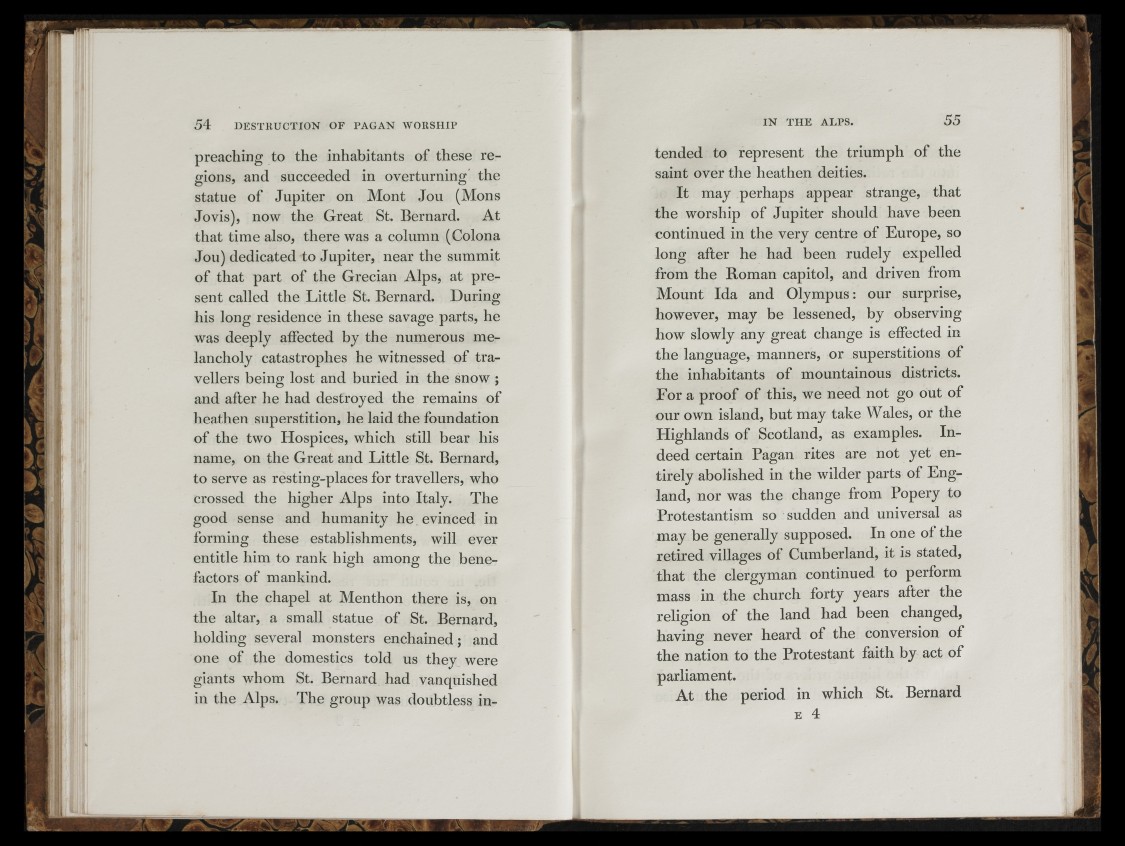
preaching to the inhabitants of these regions,
and succeeded in overturning the
statue of Jupiter on Mont Jou (Mons
Jo vis), now the Great St. Bernard. At
that time also, there was a column (Colona
Jou) dedicated to Jupiter, near the summit
of that part of the Grecian Alps, at present
called the Little St. Bernard. During
his long residence in these savage parts, he
was deeply affected by the numerous melancholy
catastrophes he witnessed of travellers
being lost and buried in the snow ;
and after he had destroyed the remains of
heathen superstition, he laid the foundation
of the two Hospices, which still bear his
name, on the Great and Little St. Bernard,
to serve as resting-places for travellers, who
crossed the higher Alps into Italy. The
good sense and humanity he evinced in
forming these establishments, will ever
entitle him to rank high among the benefactors
of mankind.
In the chapel at Menthon there is, on
the altar, a small statue of St. Bernard,
holding several monsters enchained; and
one of the domestics told us they were
giants whom St. Bernard had vanquished
in the Alps. The group was doubtless int!
'■■AP
tended to represent the triumph of the
saint over the heathen deities.
It may perhaps appear strange, that
the worship of Jupiter should have been
continued in the very centre of Europe, so
long after he had been rudely expelled
from the Roman capitol, and driven from
Mount Ida and Olympus: our surprise,
however, may be lessened, by observing
how slowly any great change is effected in
the language, manners, or superstitions of
the inhabitants of mountainous districts.
For a proof of this, we need not go out of
our own island, but may take Wales, or the
Highlands of Scotland, as examples. Indeed
certain Pagan rites are not yet entirely
abolished in the wilder parts of England,
nor was the change from Popery to
Protestantism so sudden and universal as
may be generally supposed. In one oi the
retired villages of Cumberland, it is stated,
that the clergyman continued to perform
mass in the church forty years after the
religion of the land had been changed,
having never heard of the conversion of
the nation to the Protestant faith by act of
parliament.
At the period in which St. Bernard
E 4
r Ir-
!:#
k j